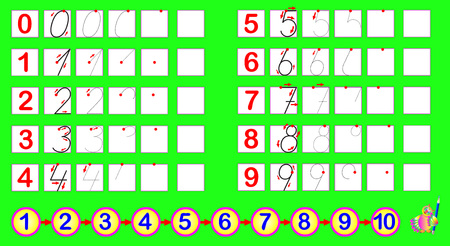Understanding the I Ching and Its Origins
The I Ching, also known as the Book of Changes, stands as one of the most enduring classics in Chinese literature. To a British reader, it can be likened in stature to Shakespeare’s plays or the Magna Carta—ancient, influential, and deeply woven into cultural identity. Originally compiled over two millennia ago, the I Ching emerged during a period of profound philosophical development in China, particularly around the Zhou dynasty (c. 1046–256 BCE). At its core, the text is both a manual for divination and a treatise on philosophy, reflecting an early understanding of change and transformation in human affairs. Its structure is built upon 64 hexagrams—combinations of six broken or unbroken lines—which symbolise various states and processes found in nature and society. Over centuries, scholars and sages have interpreted these patterns as guides for decision-making and self-cultivation. For those in Britain unfamiliar with Chinese traditions, the I Ching offers not only a glimpse into ancient wisdom but also an invitation to reflect on how cultures throughout history have sought meaning through symbols and stories. As we explore this classic from a British perspective, we recognise its continuing relevance and the universal questions it seeks to address.
2. Why the I Ching Appeals to British Curiosity
The British fascination with the I Ching can be traced to a long-standing tradition of philosophical inquiry and an enduring appreciation for the mystical and unknown. For centuries, British thinkers have gravitated towards systems that encourage reflection, debate, and exploration of life’s deeper meanings. The I Ching, with its roots in ancient Chinese philosophy, offers a unique blend of rational structure and enigmatic wisdom—qualities that resonate strongly with a British audience.
Philosophical Parallels: The British Mindset and the I Ching
British intellectual culture has always valued reasoned discussion and critical analysis. The I Ching’s system of hexagrams invites users to consider multiple perspectives before reaching a conclusion, echoing the Socratic method and traditions found in British academic circles. Its emphasis on embracing uncertainty aligns well with the British tendency towards scepticism and open-mindedness.
Comparison Table: British Traditions vs. I Ching Features
| British Tradition | I Ching Feature |
|---|---|
| Philosophical debate | Interpretative ambiguity |
| Appreciation for literature | Rich poetic imagery |
| Scepticism of certainty | Acceptance of change and flux |
The Allure of the Mystical
Beyond logic and analysis, there is also a strong vein of mysticism running through British history—from Druidic practices to Arthurian legends. The I Ching’s symbolic language and ritualistic use appeal to this cultural love for the arcane and mysterious. For many Britons, consulting the I Ching is not merely about seeking answers, but about participating in a tradition that values both intellect and intuition.
Cultural Resonance: Why It Matters
This unique combination of philosophical depth and mystical allure explains why the I Ching continues to captivate British minds. By bridging rational inquiry with symbolic interpretation, it offers a satisfying challenge to those who seek meaning beyond the obvious—making it an enduring source of curiosity within the UK.

3. Core Concepts of the I Ching Made Simple
For those new to the I Ching, especially from a British perspective, its important to demystify its core ideas. The I Ching is often seen as complex, but at its heart, it revolves around a few essential concepts that can be explained in everyday English. Here’s a breakdown of what you need to know:
Hexagrams: The Building Blocks
The I Ching uses patterns called hexagrams. Each hexagram is made up of six lines, which can either be solid or broken. Think of them as simple diagrams or visual codes. There are 64 possible combinations, and each one represents a different situation or theme in life. You don’t need to memorise them all; rather, understand that each hexagram offers a different piece of advice or insight.
Yin and Yang: Opposites Working Together
You’ve probably heard of yin and yang before—opposite forces that balance each other out. In the I Ching, solid lines are considered yang (active, strong), while broken lines are yin (passive, yielding). It’s not about good versus bad, but more about how these opposing qualities interact and create balance in every part of life—a concept that resonates with the British love for moderation and fair play.
Change: The Constant Theme
The central message of the I Ching is change itself. Life isn’t static; things shift and evolve all the time. The I Ching encourages us to recognise when change is happening and respond thoughtfully. This echoes a very British sensibility: staying adaptable yet composed in the face of uncertainty.
Putting It All Together
If you approach the I Ching with these basic ideas—hexagrams as life scenarios, yin and yang as balancing forces, and change as a constant—you’ll find it much less intimidating. Rather than being lost in jargon or mysticism, you can see it as an ancient system offering practical advice for navigating everyday challenges in a typically pragmatic British manner.
4. How to Consult the I Ching: A Practical Guide
For British beginners, consulting the I Ching may seem mysterious, but it can be both accessible and meaningful with a practical approach. This step-by-step guide uses familiar objects and clear instructions so you can easily begin your journey.
Step 1: Prepare Your Materials
You do not need traditional yarrow stalks; everyday UK household items will suffice. The most common method is using six coins—any similar-sized coins, such as 2p or 10p pieces, work well. You will also need pen, paper, and an English translation of the I Ching (widely available online or in bookshops).
Step 2: Set Your Intention
Find a quiet spot, perhaps with a cup of tea to help you reflect. Take a moment to focus on your question. It should be open-ended, for example: “What should I consider about this new job opportunity?”
Step 3: Casting the Hexagram
Toss three coins at once for each line of the hexagram, repeating this process six times from the bottom line upwards. Record heads and tails for each throw:
| Combination | Resulting Line Type | Value |
|---|---|---|
| Three Heads | Old Yang (changing line) | 9 |
| Two Heads, One Tail | Young Yin (unchanging line) | 8 |
| Two Tails, One Head | Young Yang (unchanging line) | 7 |
| Three Tails | Old Yin (changing line) | 6 |
This process creates a unique six-line pattern—your hexagram.
Step 4: Interpreting Your Reading
Look up your hexagram in your I Ching translation. Pay special attention to any changing lines (values 6 or 9), as these indicate areas of transition or advice for action. Read both the main hexagram and its changed form if there are changing lines.
A British Approach to Understanding Results
Interpretation can feel abstract. Ground your understanding by relating the advice to your daily life—think about how it fits with British cultural values like pragmatism, fairness, or community spirit.
Sample Interpretation Table
| I Ching Guidance | British Cultural Parallel |
|---|---|
| Wait for the right moment | Keep calm and carry on |
| Cautious progress advised | Look before you leap |
| Consult with others for insight | A problem shared is a problem halved |
| Avoid rash action; show patience | Good things come to those who wait |
This structured process makes consulting the I Ching approachable for anyone in Britain, blending ancient wisdom with local sensibilities and everyday practicality.
5. British Reflections: The I Ching in Modern Life
The wisdom of the I Ching, though ancient and rooted in Chinese philosophy, finds surprising resonance in the everyday realities of British life. For those new to its teachings, it is helpful to understand how its principles can be mapped onto contemporary issues faced by individuals and communities across the UK.
Adapting to Change: Navigating Uncertainty
One core tenet of the I Ching is its focus on change and adaptability. In Britain, where political shifts such as Brexit or economic uncertainties due to global events are commonplace topics, the I Ching’s advice to embrace change rather than resist it aligns with the national ethos of resilience. For example, during times of economic fluctuation, British readers might consult the hexagram “Changing Lines” for guidance on adapting spending habits or seeking new opportunities, echoing the pragmatic approach many adopt when facing redundancy or shifting job markets.
Decision-Making in Everyday Life
The I Ching encourages reflective decision-making, a trait often associated with British sensibility. Whether deciding whether to accept a new role in another city or weighing up the benefits of sustainable living choices—such as switching to public transport—the text’s emphasis on considering potential outcomes can help Britons make more thoughtful decisions. The process of consulting the I Ching itself mirrors traditional British practices like seeking advice from trusted friends or engaging in community dialogue before acting.
Relationships and Community Values
Britain values community cohesion and respectful discourse, especially apparent in diverse cities and rural villages alike. The I Ching’s themes of harmony and mutual respect are directly applicable here. For instance, when neighbours disagree over local issues—be it parking disputes or shared garden spaces—the text’s suggestions for patience and compromise offer a constructive framework that complements British politeness and mediation traditions.
Mental Well-being and Mindfulness
With mental health being an increasingly discussed topic in British society, the meditative aspect of consulting the I Ching provides an opportunity for self-reflection and mindfulness. Many Brits find solace in quiet rituals such as afternoon tea; similarly, engaging with the I Ching can serve as a calming routine that fosters introspection and emotional balance amidst daily stressors.
Real-Life Example: Coping with Change
Consider a British university student facing uncertainty about future employment post-graduation—a common concern. By consulting the I Ching, they might receive guidance that advises flexibility and continuous learning, reinforcing widely held UK values around lifelong education and personal development. Such practical applications demonstrate how this ancient text can support modern Britons navigating both minor dilemmas and major life transitions.
In summary, while rooted in a different cultural context, the I Ching offers universal insights that can be readily integrated into contemporary British life. Its teachings on change, reflection, community, and well-being not only complement existing British values but also provide fresh perspectives for addressing daily challenges in today’s UK.
6. Resources for Further Exploration in the UK
Reputable Books to Begin Your Journey
For those in the UK wishing to delve deeper into the I Ching, starting with well-regarded English translations and commentaries is essential. Recommended books include The I Ching or Book of Changes translated by Richard Wilhelm and Cary F. Baynes, which remains a classic reference for Western readers. Another accessible option is Brian Browne Walker’s The I Ching: A Guide to Life’s Turning Points, known for its clear language and practical approach. For a distinctly British perspective, look for works by British sinologists such as D.C. Lau, whose scholarship provides valuable context.
Online Communities and Discussion Forums
The digital landscape offers several UK-focused online communities where enthusiasts share insights and interpretations. The I Ching Community UK on Reddit and Facebook are vibrant spaces for both newcomers and seasoned practitioners to ask questions, exchange readings, and discuss British cultural perspectives on the text. The UK Yi Jing Forum is another reputable platform where users can participate in guided discussions and access resources tailored to British audiences.
Local Groups and Study Circles
Across major cities like London, Manchester, and Edinburgh, local groups meet regularly to study the I Ching together. Organisations such as The British Taoist Association and the Lifelong Learning Centres often host workshops or reading circles dedicated to Chinese classics, including the I Ching. Libraries such as The British Library occasionally offer talks or exhibitions relevant to Chinese philosophy, providing further opportunities for immersive learning.
Academic Resources
If you wish to approach the I Ching from an academic angle, many UK universities have sinology departments with public lectures or open courses on Chinese texts. Institutions like SOAS University of London are renowned for their expertise in East Asian studies and frequently welcome members of the public to their events.
Final Thoughts on Continuing Your Exploration
The journey into the I Ching is enriched by connecting with others who share your curiosity. Whether through trusted books, dynamic online forums, or face-to-face study groups across the UK, these resources provide a robust foundation for deepening your understanding within a uniquely British context.


